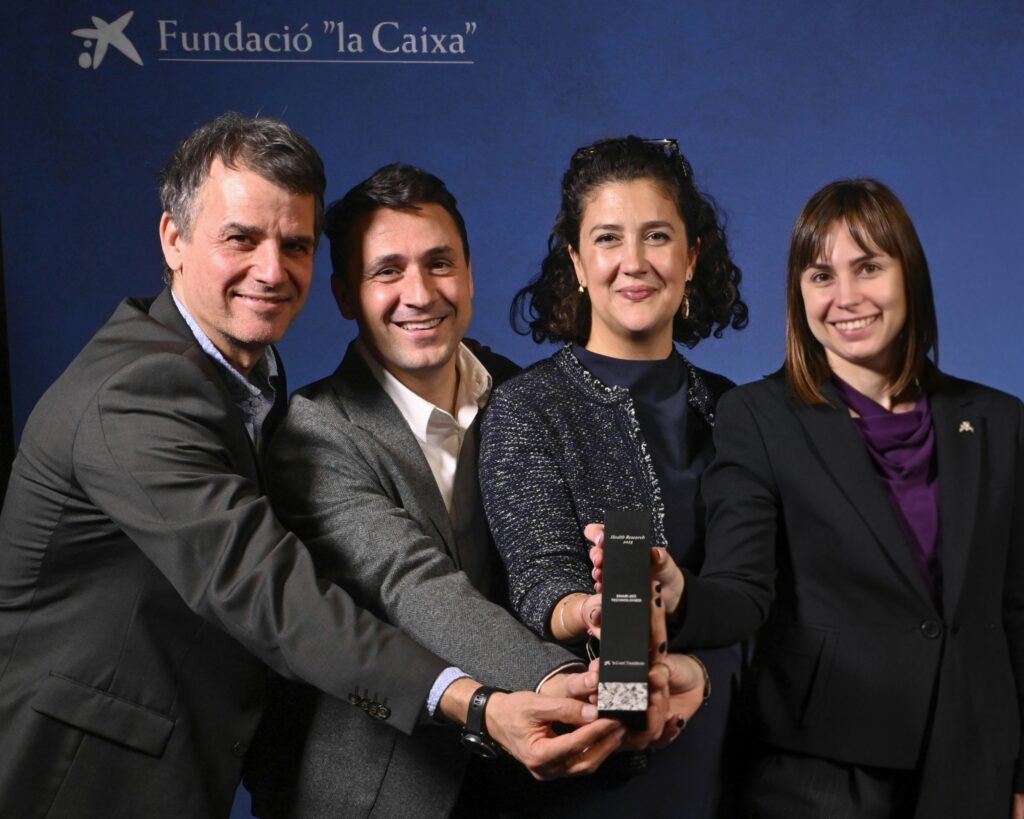Zaida Álvarez Pinto, a Principal Investigator at IBEC, will lead a biomedical research project that was selected in the 2025 edition of the ‘la Caixa’ Foundation’s Health Research Call for Proposals. The project, which will be carried out in consortium with IDIBELL, the University of Barcelona, the National Spinal Cord Injury Hospital Foundation and the Spinal Cord Injury Foundation, will focus on the development of a new platform for testing treatments for spinal cord injuries.

The Institute for Bioengineering of Catalonia (IBEC) has been selected to lead one of 34 cutting-edge biomedical research projects selected in the 2025 edition of the ‘la Caixa’ Foundation’s Health Research call for proposals. This call aims to identify and promote promising initiatives of scientific excellence with potential value and social impact in basic, clinical, or translational research.
This project is particularly significant for me and my team as it enables us to implement an idea that we have been developing for years: the necessity of creating highly representative human models to improve our understanding of spinal cord injuries and develop more effective therapies.
Zaida Álvarez Pinto
Entitled ‘Human Vascularized Spinal Cord Organoid Device for Drug Discovery after traumatic injury’, the project will be coordinated by IBEC and led by Zaida Álvarez Pinto, the principal investigator of IBEC’s Biomaterials for Neural Regeneration group. It will also involve four partner organisations: the Bellvitge Biomedical Research Institute (IDIBELL), led by J. Alberto Ortega; the University of Barcelona (UB), led by Elena Sánchez; the National Hospital for Paraplegics Foundation for Research and Integration, led by Antonio Oliviero; and the Spinal Cord Injury Foundation (FLM).
Commenting on this new scientific challenge, Zaida Álvarez Pinto emphasises that ‘This project is particularly significant for me and my team as it enables us to implement an idea that we have been developing for years: the necessity of creating highly representative human models to improve our understanding of spinal cord injuries and develop more effective therapies. It is an extraordinary opportunity to integrate technology, human biology, and years of knowledge in neural regeneration into a single platform with real potential for clinical impact.’
This year’s call, which allocates a total of €26 million to excellent biomedical research, has awarded the research consortium led by Álvarez Pinto a grant of €999,559.03.
On Thursday, 20 November, the grant award ceremony took place at the CosmoCaixa Science Museum. The event featured testimonials from Zaida Álvarez and Ana Paula Pêgo, from the Porto Institute for Health Research and Innovation; who are junior and senior group leaders, respectively. They both discussed the challenges and future opportunities they face in their research work.

A new platform for testing treatments for spinal cord injuries
Spinal cord injuries affect hundreds of thousands of people every year, often causing permanent paralysis and lifelong physical and emotional problems. Despite decades of research, effective treatments remain elusive, largely because current models do not accurately reflect human biology. This project aims to address this issue by creating a new, human-based model for studying spinal cord injuries and testing potential treatments.
The researchers involved in the project are developing miniature human spinal cords (organoids), which are grown from stem cells and combined with vascular organoids in order to better mimic real tissue. These organoids are placed in a specially designed, 3D-printed device that uses a computer-controlled force system to simulate injuries. This design enables accurate and repeatable studies of how spinal cord injuries occur and how they manifest in tissue.
The project will also test two commercially available drugs, riluzole and minocycline, which will be delivered directly to injured tissue using advanced nanoparticles. These drugs have shown promise in animal studies and human clinical trials, and the new platform will help determine their efficacy in conditions similar to those experienced by humans. The ultimate goal is to create a reliable, animal-free drug testing system that can accelerate the development of treatments for spinal cord injuries and other neurological disorders.





